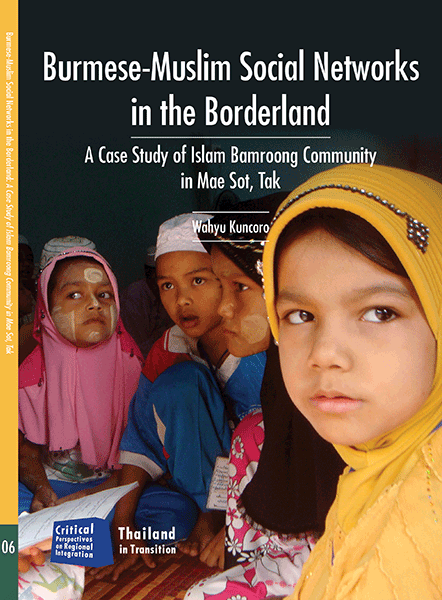A Case Study of Islam Bamroon Muslim Community in Mae Sot, Thailand
Burmese Muslims have been successful in socio-economically adapting to life in Mae Sot. When they first arrive, family and ethnicity relations are their base social network which helps them access needs such as shelter and work. This network has broadened with their participation in religious activities alongside other Muslim communities. Being Muslim has also allowed Burmese Muslims access to religious networks and social and cultural facilities, and to connect with transnational Islamic networks throughout Thailand. Burmese Muslims become involved through a mix of faith and as adaptive strategy to negotiate with state agencies to access and accumulate multiple forms of capital.
This thesis argues that ethnic identity is a state construction, then re-worked and re-presented in a variety of ways by different people and groups. The meaning of ethnic identity is not only related to imagined ethnic boundaries, but also as cultural capital that connects people or units with broader socio-cultural, economic and political networks.
Publication date : February 2018
Price : 420 Baht / 14 US$
Published through Chiang Mai University Press

